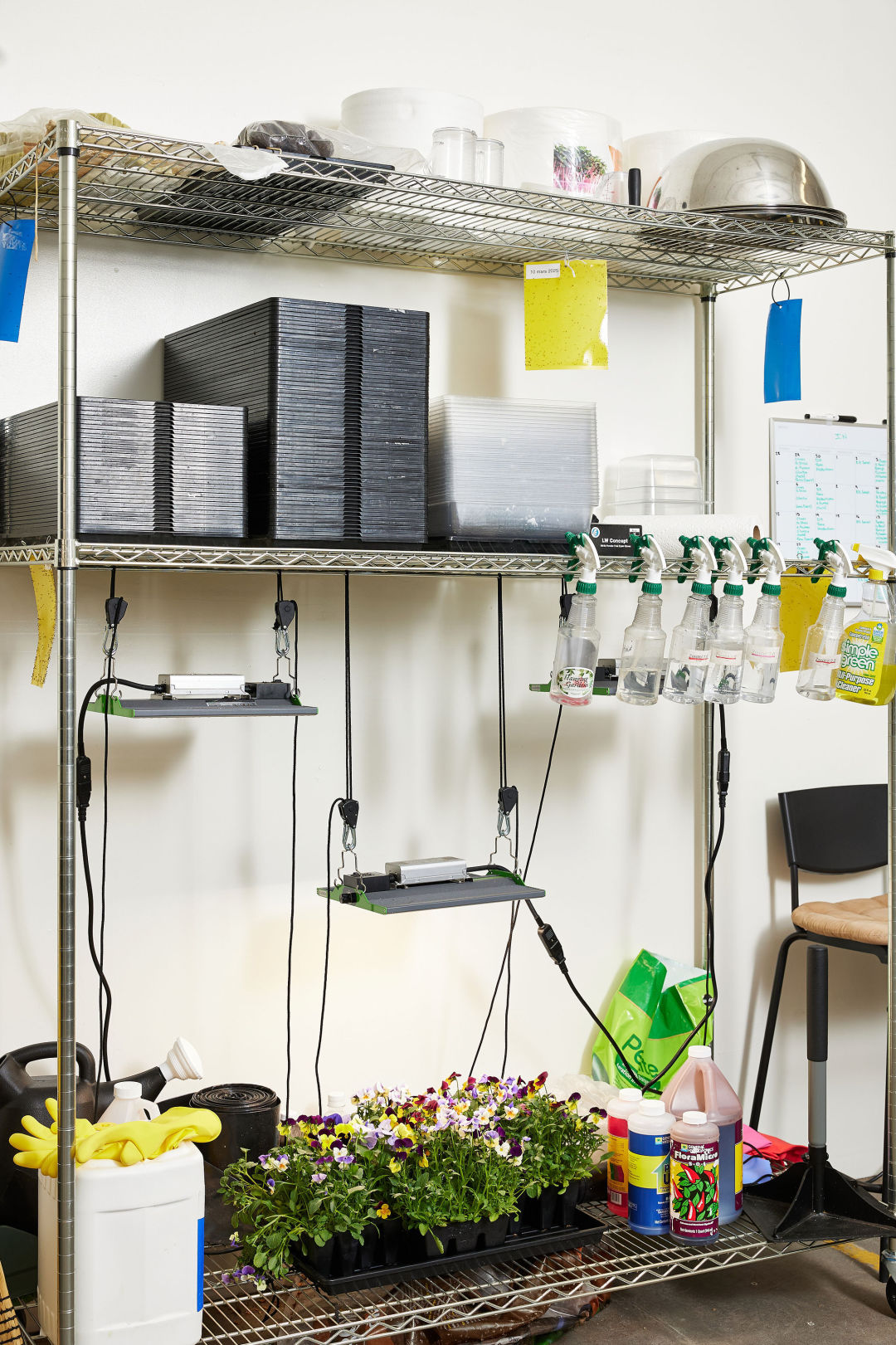The Basement Herb Farm Growing Tastes of Home

Image: Amber Fouts
Moments after I ate one of the buzz buttons—a citrusy daisy relative—Ryan Delaney handed me in his basement farm underneath a Chinatown–International District office building, I asked him to just keep talking until I felt like I would stop drooling. In more than a decade of interviewing people about food, that was a first. On the upside, the numbing effect rid my mouth of the lingering taste of something called fish mint, which tasted nothing of mint. It reminded me of a seafood restaurant dumpster left in the hot sun, but when Delaney takes a leaf to the right person, it floods them with the memory of their grandmother’s garden—and that’s the whole point.

Image: Amber Fouts
King Nebuchadnezzar II purportedly built the Hanging Gardens of Babylon, one of the seven wonders of the world, to ease the homesickness of his Persian wife, Amytis. When Delaney’s own Persian wife, Negin, couldn’t find the herbs she wanted to make her favorite foods, he copped the king’s moves and started growing them for her in their spare bathroom. When friends started asking for her reyhoon (Persian basil) and shahi (garden cress) plug, Delaney saw opportunity and created Hanging Gardens, an indoor farm that supplies local chefs with hard-to-find herbs and edible flowers year-round.
In 2023, the operation moved into this basement where an army of computer fans blow on rows of Metro shelving loaded with shop lights. Flats of tiny herbs soak up the water pumped toward them after a dehumidifier reclaims it from the air. In the next few days, Delaney will harvest red garnet amaranth and violas for Lenox, anise hyssop and popcorn shoots for Hamdi, and menthe de montagne for Copine. All over town, his red veined sorrel, bronze fennel, and pineapple mint make their way into food and drinks.

Image: Amber Fouts
“There’s so many amazing herbs and crops out there around the world,” says Delaney. “Then you go to the grocery stores here and you see the same five, six, seven things.” He started out by growing what his wife craved, but as he expanded, he started researching seeds and herbs that couldn’t be found here. Now, he jokes that he has outsourced that work to his chef customers.
Jerry Corso of Bar del Corso said he’d start buying from Delaney if he could supply that menthe de montagne. Now he’s a seasonal customer, also using the Genovese basil in summertime. Delaney is currently trying to nurse some life into Vietnamese coriander that Ramie had been looking for. The bronze fennel, which has a mellow sweetness, was a request from Copine.

Image: Amber Fouts
The scotch bonnet pepper plant at the front of the basement is mostly just for himself, though. Delaney lived in Haiti for a decade, where he started a clean cooking fuel company that turned sugarcane waste from rum distilleries into charcoal briquettes. When he moved back to Seattle, where he grew up, he had been consulting for a bit as he figured out what to do next. He tells me this as I taste my way through epazote—a diesel-y flavor familiar to me from traveling through Mexico—borage, and red rubin basil.

Image: Amber Fouts
Delaney excitedly describes the origins of each plant as he trims me a sprig, laying out at what restaurants or in which drink it might end up. Chefs like that he can custom grow for them, so something like lemon balm, often sold as big leaves, can fit a delicate dish. In the windowless basement, there is no season, so the edible flowers bloom as brightly in December as in July. And unlike shipped-in herbs from Arizona or farther afield, he cuts them the same day he delivers, making the root beer notes of anise hyssop and spiciness of mizuna pack a little extra punch.
Wandering the farm feels like I’m in my personal version of Wonka’s chocolate factory, seeing where the herbs and flavors I eat all the time come from and tasting them in their purest forms.

Image: Amber Fouts
But not everything Delaney plants turns out to be a golden ticket: A distillery partnership fell through for his wormwood (tastes just like absinthe), and nobody’s bought those buzz buttons yet. He mostly grows them as a conversation starter, he says, which makes me laugh since I can barely speak while I ponder if an Oompa Loompa might need to come mop up my drool.




